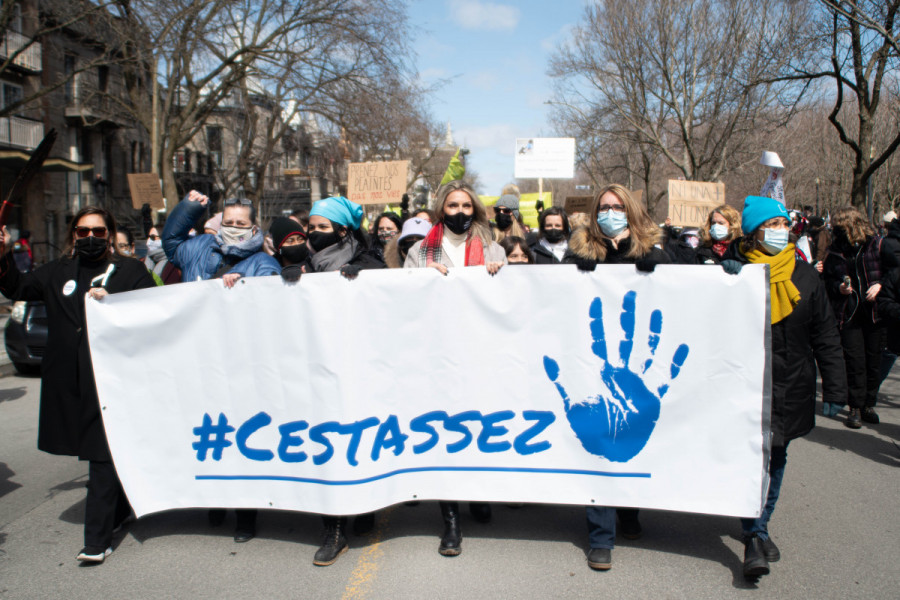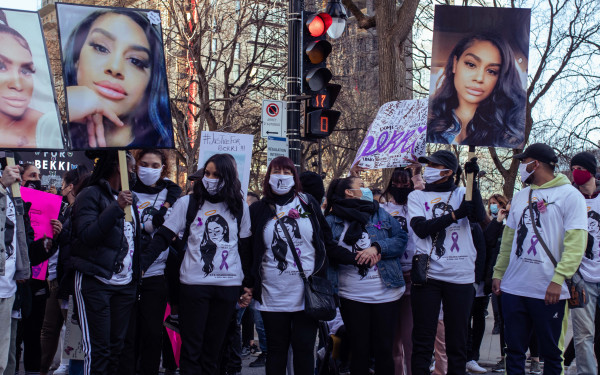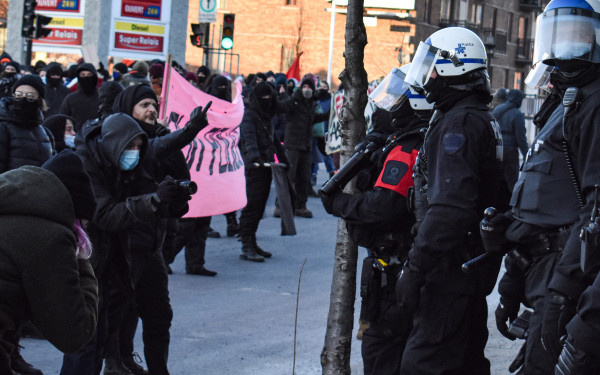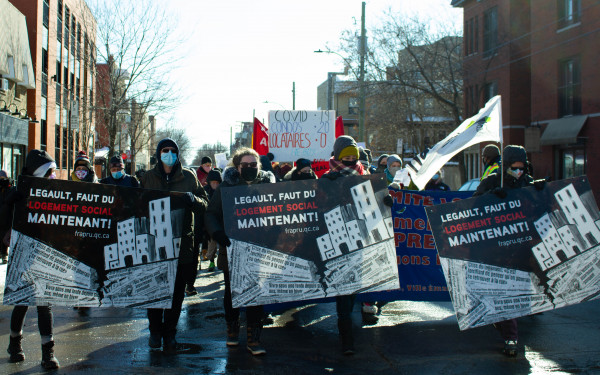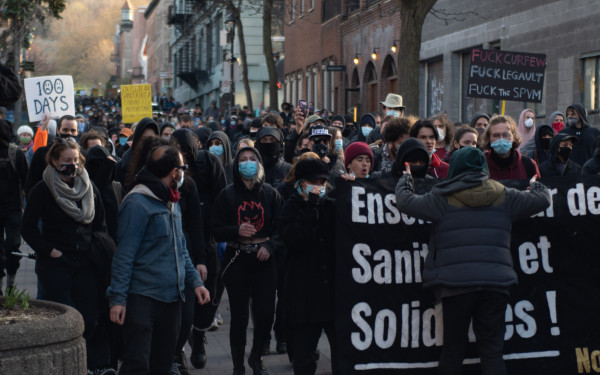Protesters chant ‘Enough is enough’ to denounce domestic violence
Women’s shelters and organizations call for collective involvement to counter domestic violence
Around 10,000 protesters flooded the streets of the Plateau on April 2 to show their indignation, following the recent wave of femicides in Quebec.
This mobilization took place in several regions of Quebec including Sherbrooke, Rimouski and Joliette. The march, which began at Parc La Fontaine, was organized by the Regroupement des maisons d'hébergement pour femmes victimes de violence conjugale, the Fédération des maisons d’hébergement pour femmes and L’R des centres de femmes.
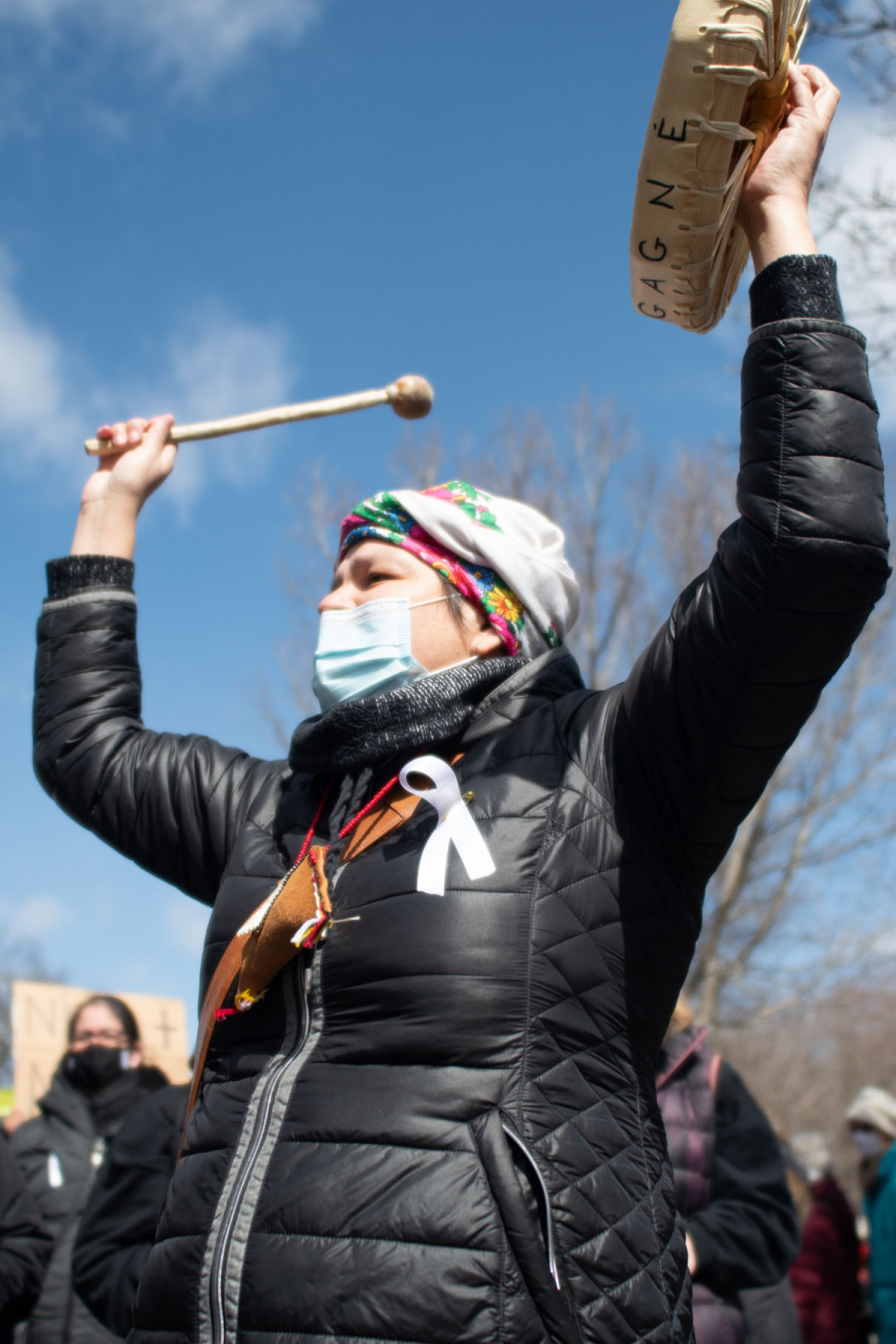
As protesters walked up the streets of the Plateau chanting “Women with no fear, united against violence,” passersby stopped to watch, pulling out their phones to film.
Manon Monastesse, president of the FMHF, spoke about the importance of this global mobilization. “We want to make the population aware of the urgency to act, and the urgency of getting a government and collective response regarding violence made against women,” she said.
In eight weeks, eight women were killed at the hands of their partners in Quebec. The Canadian Femicide Observatory for Justice and Accountability’s report revealed that 128 women and girls were killed by men in 2020.
Chantal Arsenault, president of the Regroupement des maisons d'hébergement pour femmes victimes de violence conjugale, talked about the importance of recognizing and observing signs of domestic violence among women. “If you notice that a woman isolates herself, changes her behaviour when she’s around her partner and receives constant text messages; these should all serve as indicators to help women in abusive relationships,” she said.
According to Arsenault, the pandemic has contributed to the increase of violence but it does not change the fact that domestic violence remains a social issue. “It raises the question of a pandemic that is a little more hidden and silent, which is called domestic violence,” she added.
“We want to make the population aware of the urgency to act, and the urgency of getting a government and collective response regarding violence made against women.” — Manon Monastesse
Arsenault also urged the government to take concrete action by expanding resources and by implementing the recommendations made in a report by the Committee of Experts on Support for Victims of Sexual Assault and Domestic Violence. The report, released on Dec. 15, 2020, contains 190 recommendations which call for better support and accessibility to psychosocial and legal resources for victims of domestic violence.
The Quebec government disclosed its 2021-2022 budget on March 25, which plans on investing $22.5 million for women’s shelters across the province. However, it is not enough, according to Elizabeth Jean, a protestor and worker at La Maison du Réconfort.
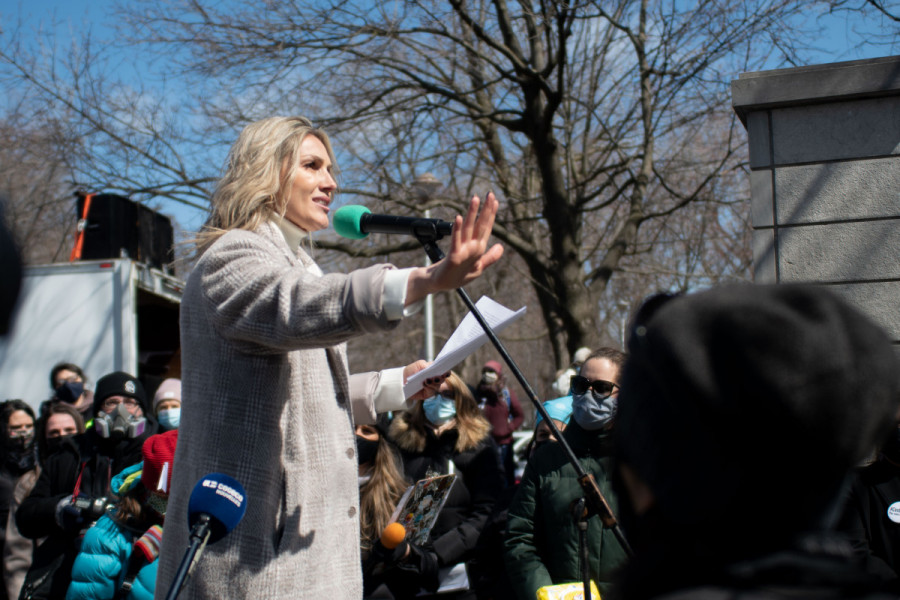
“It’s the equivalent of $4.5 million per year distributed among approximately a hundred shelters. $45,000 for a single shelter barely covers the electricity and food for the women,” said Jean.
Several representatives who spoke, such as Viviane Michel, president of Quebec Native Women, highlighted the importance of educating the younger generation of men. “First Nations women say that we need to re-teach the word ‘respect’ to our men towards women,” said Michel.
With the same intention, Monastesse addressed the cheering crowd of protesters that gathered at Mont-Royal. “It is necessary to question your privileges as a man. Equality is not achieved. Fight alongside us so that women have the same privileges as you,” she said.

